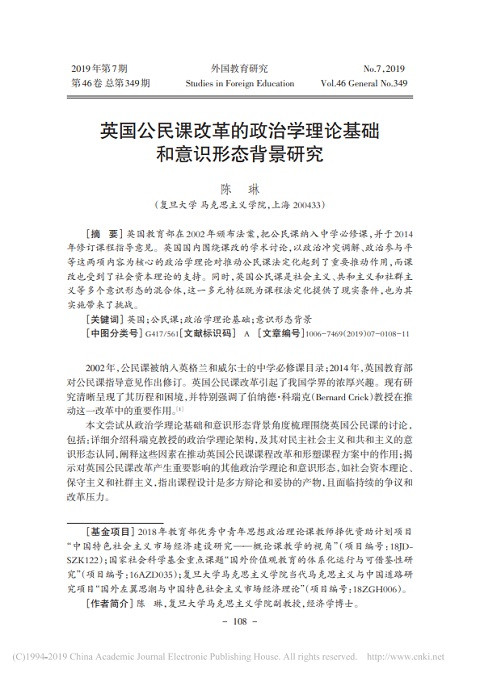
GCED Basic Search Form
Quick Search
Close
You are here
Resources
The Theoretical Foundation and Ideological Background of the Citizenship Curriculum Reform in England (Studies in Foreign Education; Vol. 46, No. 7)
Place of publication | Year of publication | Collation:
Changchun | 2019 | p. 108-118
ISBN/ISSN:
ISSN 1006-7469
Region:
Asia and the Pacific

Citizenship became part of the compulsory courses of secondary schools in England in 2002. The guideline was revised in 2014. Fierce academic debates shaped the curriculum reform. Political theory of political conflict mediation and political participative equality played an important role in promoting the legalization of Citizenship education. The wide acceptance of social capital theory also helps to win the necessary support. The current curriculum is a mixture of various ideologies such as socialism, republicanism and communitarianism. This multi-feature provides both pragmatic conditions for the curriculum’s legalization and challenges for its implementation.
Resource URL:
Files:
Resource Type:
Research papers / journal articles
Theme:
Civic / Citizenship / Democracy
Level of education:
Secondary education
